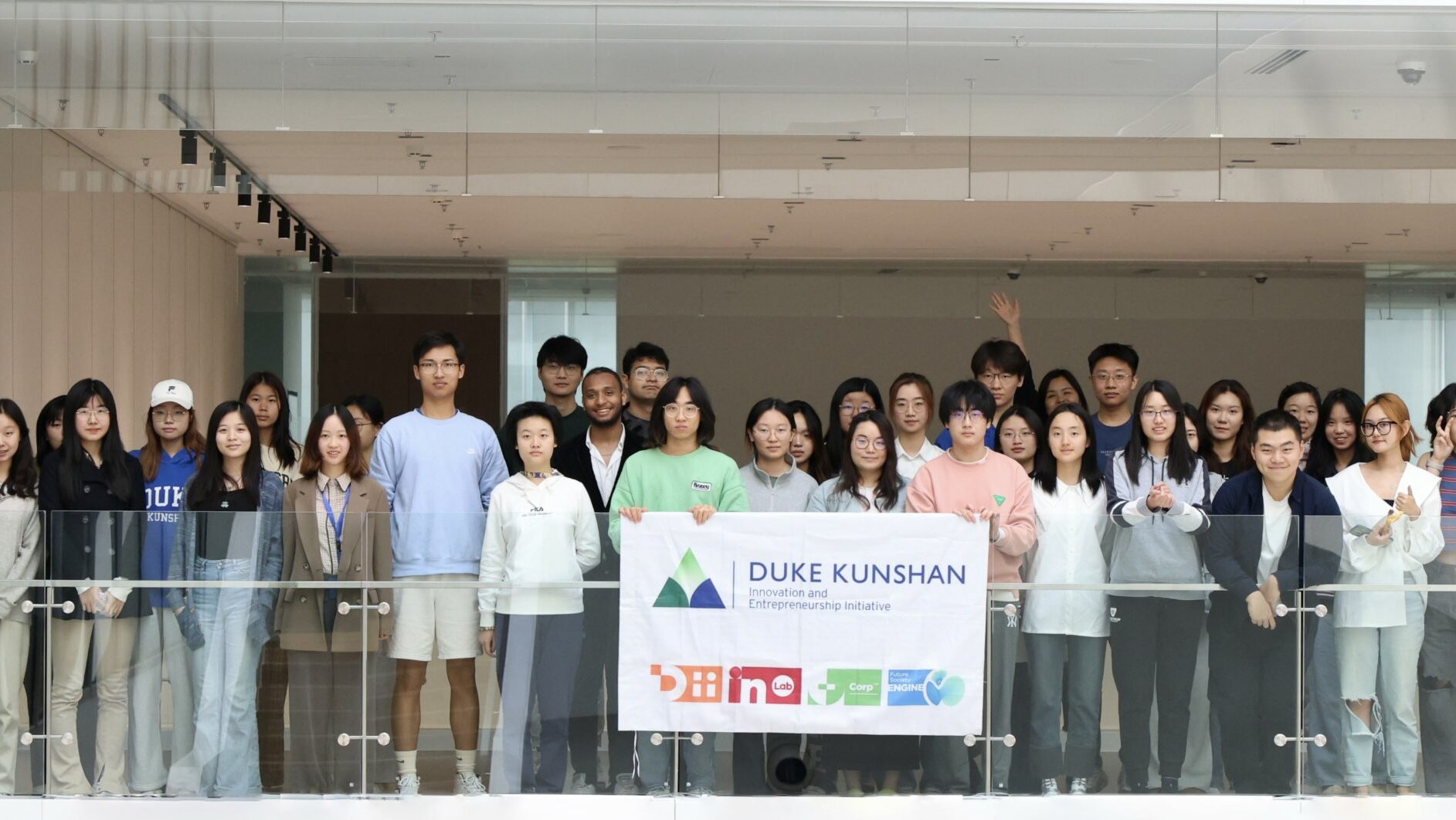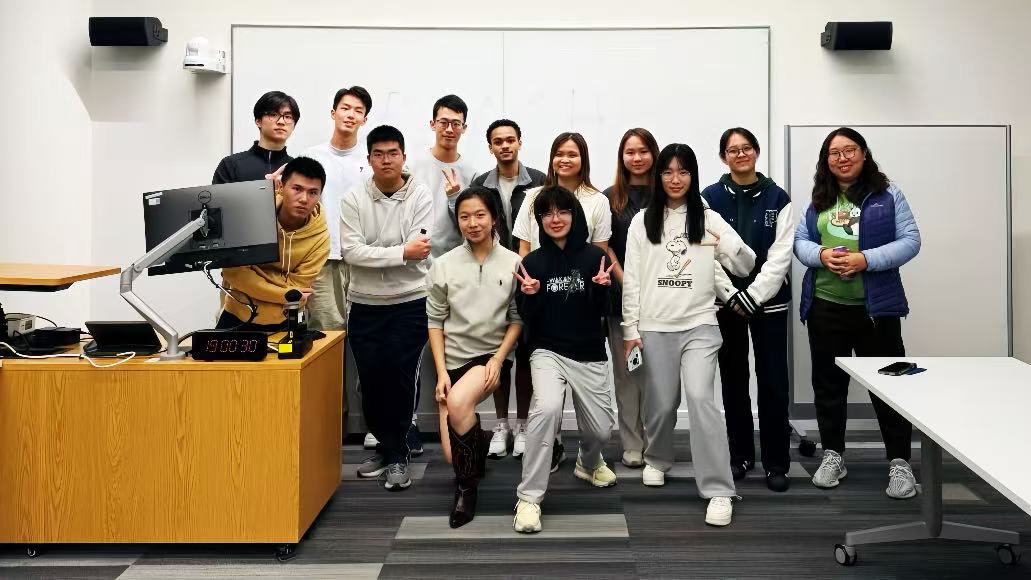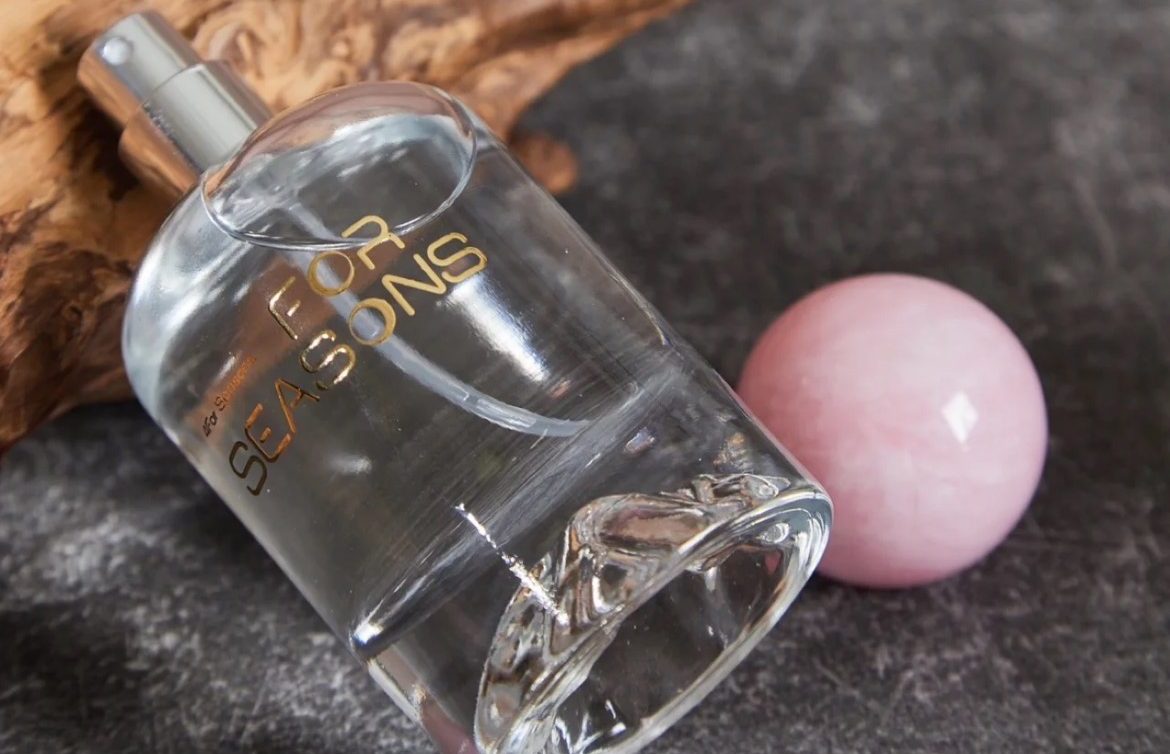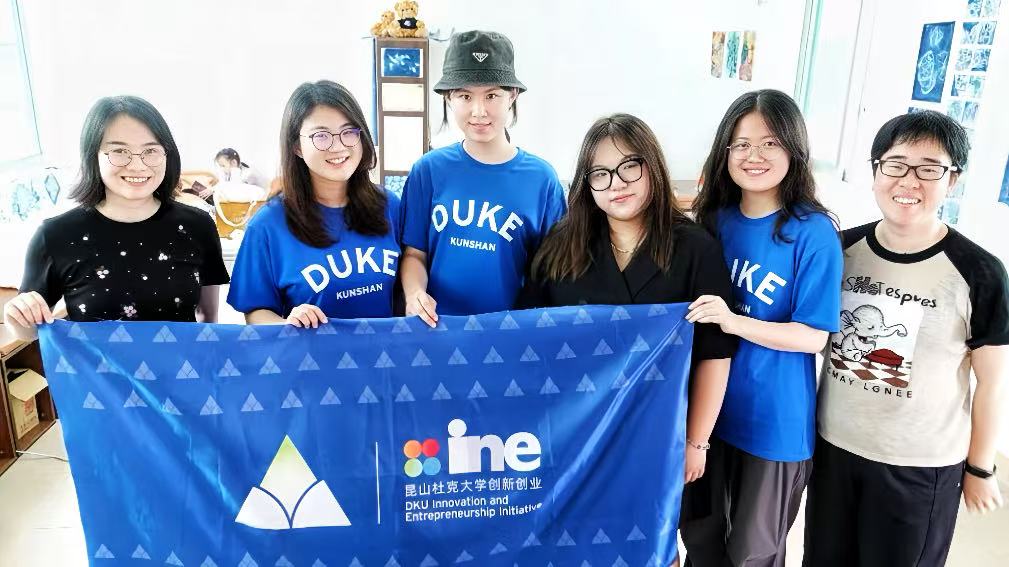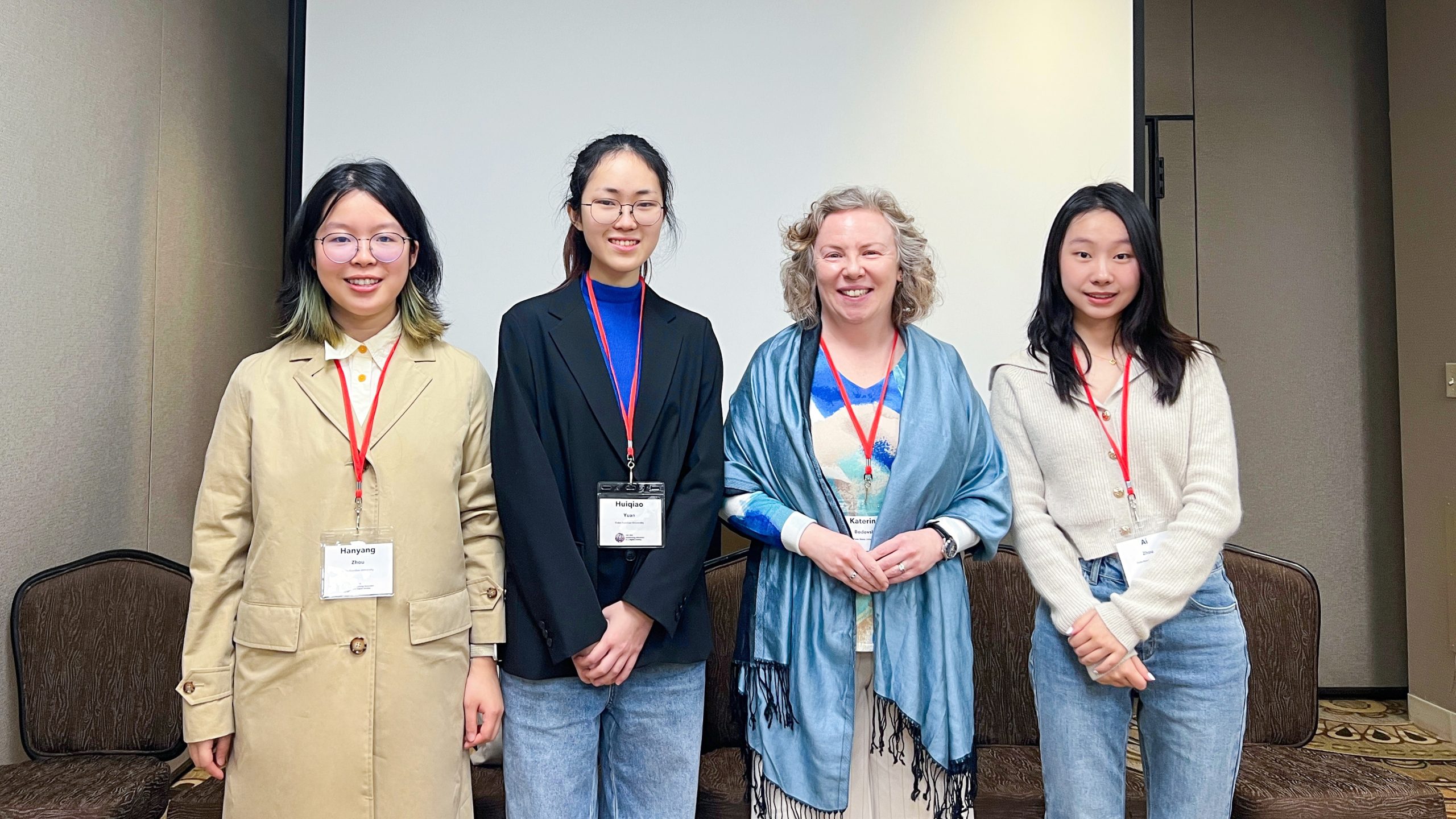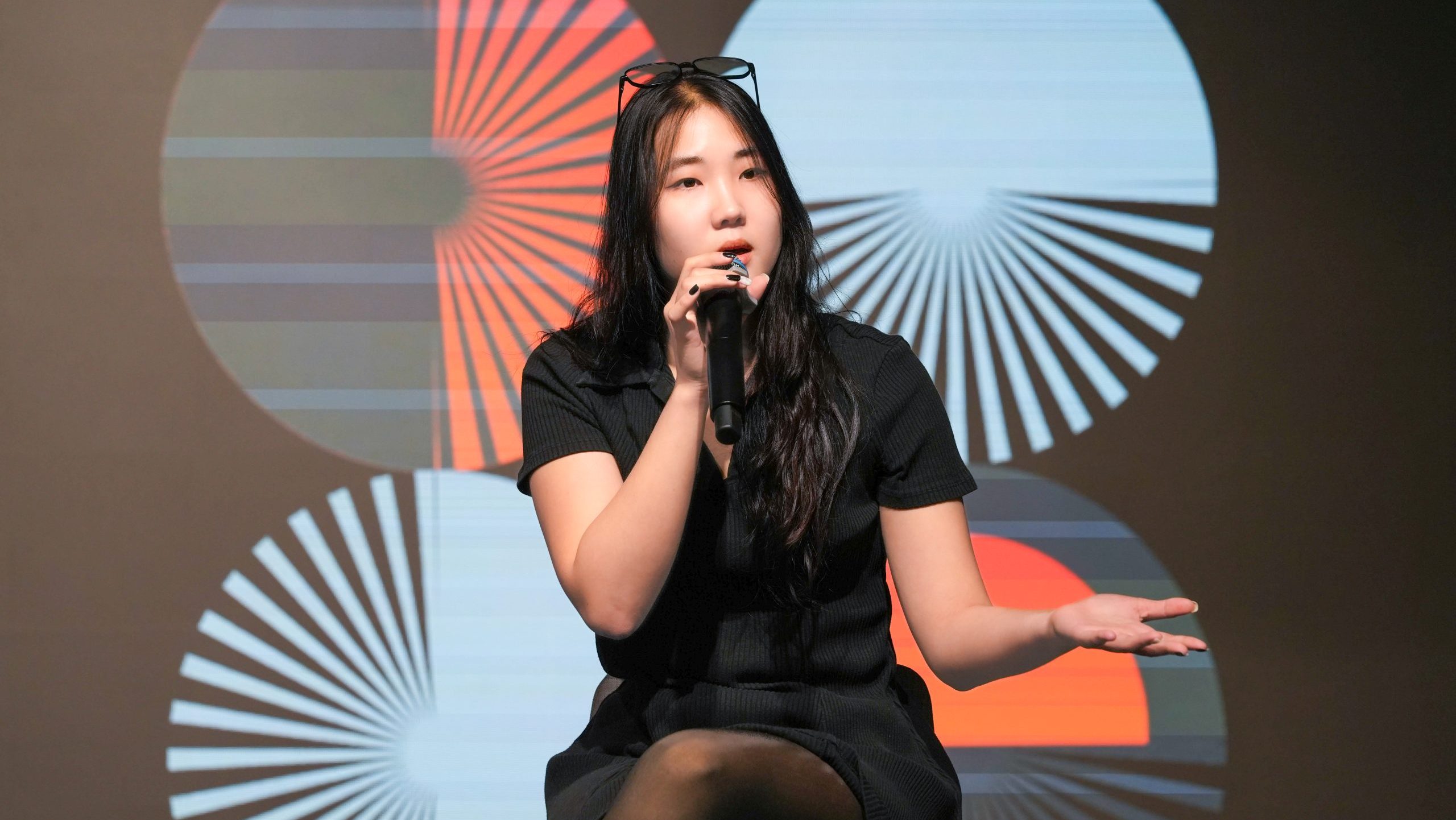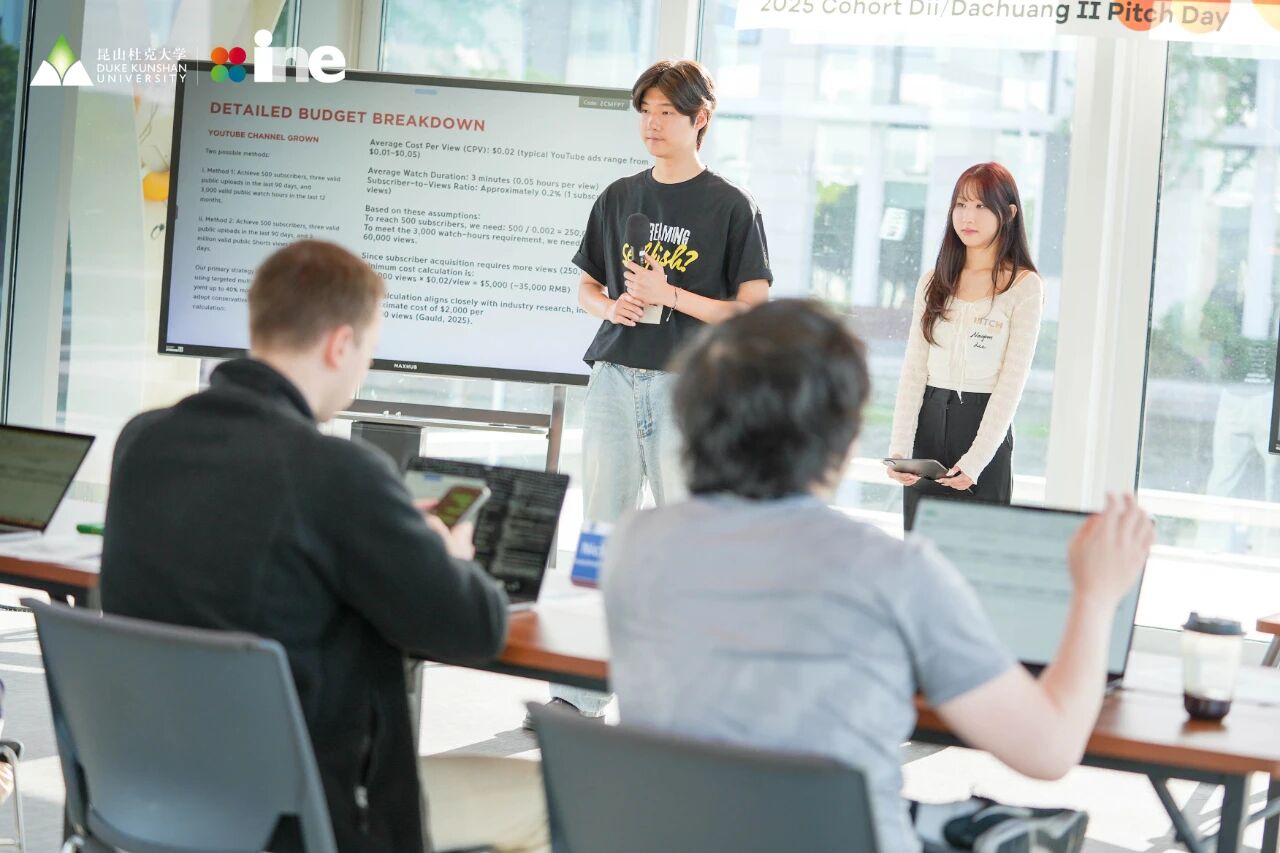Over the course of three years, with the collective efforts of 150 students and 40 projects, the University-Corporation Innovation Lab (i.e., U-Corp) at Duke Kunshan University has gradually grown into a powerful bridge connecting academia and industry, and an important platform for student innovation and practice. The U-Corp closely integrates the core educational principles of DKU with leading industry resources, covering cutting-edge fields such as software development, marketing, public policy, multi-generational space design, ESG (Environment, Society, and Governance), and rural revitalization. It has successfully established close cooperation with many well-known companies and organizations, injecting innovative energy into enterprises and providing students with rich practical experience and academic records.
In the three years of University-Corporation cooperation, the students’ project results have been widely recognized, and some of the results have been included in corporate social responsibility reports or are planned to be published in influential media. These valuable experiences have greatly enriched the students’ academic records and social practice experience, and broadened their horizons in innovation and entrepreneurship.
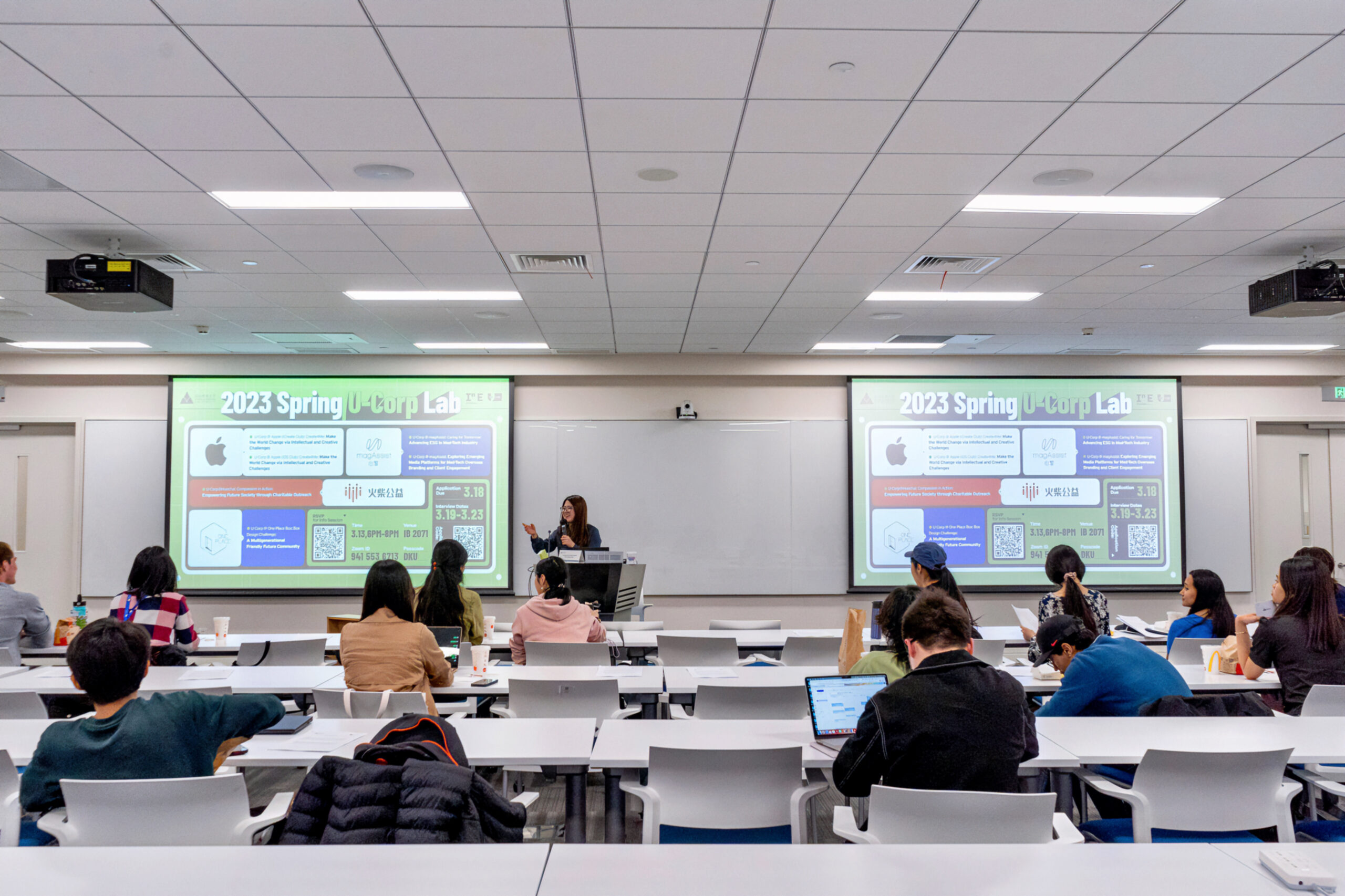
Dr. REN Liqi, the Associate Director for DKU Innovation and Entrepreneurship Initiative, said: “We are committed to cultivating new-age talents with innovative spirit and social responsibility, and the U-Corp is a vivid embodiment of this philosophy. We encourage every student at DKU to participate in it, at least once, to integrate into the actual work of enterprises or society, and deeply experience the demands and challenges of the industry.”
In the wave of globalization and informatization, U-Corp firmly believes that the experience of university-enterprise cooperation can give students the opportunity to observe and understand the operation and challenges of the industry up close. “We expect every student to step out of the ivory tower of academia, combine theory with practice, which is the necessary path for their personal growth, and also a valuable opportunity for them to broaden their knowledge horizons and improve their comprehensive qualities.”
Let’s listen to the growth experiences and gains of three senior students in the U-Corp.
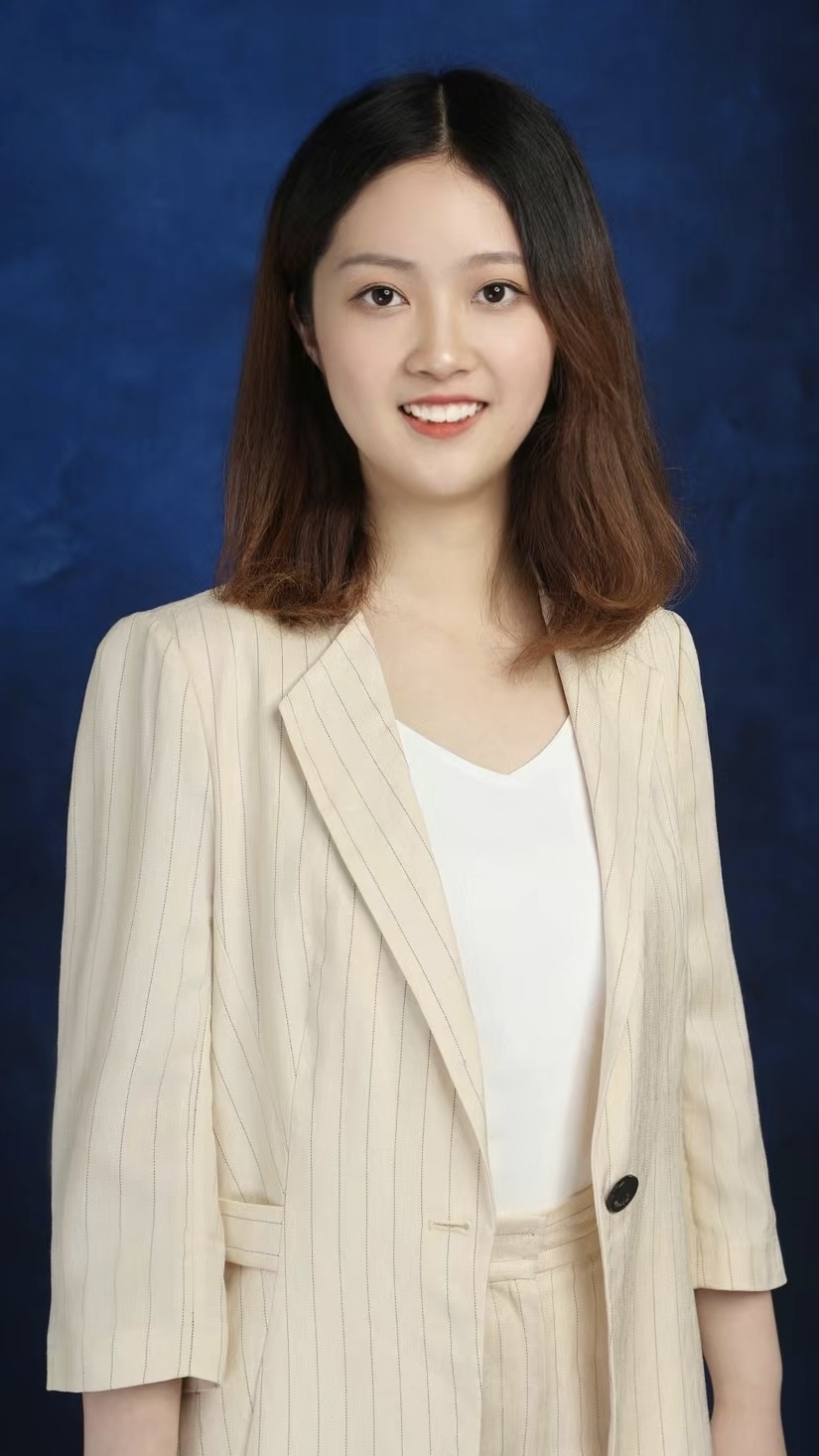
Q1: In this experience, was there a moment that you found most memorable? What challenges did you encounter?
Our project applies Design Thinking from a family perspective to design a cross-generational cohabitation solution for the OnePlaceBox community. We aim to create a suitable shared living space for people born in different eras and with different growth backgrounds.
What I remember most is the two-day field trip to Quanzhou with the team. With the support of InE, we visited the OnePlaceBox community in Quanzhou in person. Through the room tour led by the founder, communication with the principal and project mentor, and in-depth interviews with target users, we got a close look at the environment and design philosophy of the Box community, and gained insight into the real needs and user experience of the users. In the evening, the team had the opportunity to stay in the Box community, which allowed us to transform from designers to experiencers and gain a direct experience of life in the OnePlaceBox community. In addition to the project investigation, the team members also had the opportunity to stroll through the streets of Quanzhou, taste local delicacies, and appreciate the unique scenery of this ancient city. In short, the field trip to Quanzhou was both educational and fun, providing a deep insight into the project and a rich cross-cultural exchange experience, which was particularly memorable.
Through intensive field interviews and investigation records, they not only saw the real-life scenes and the practical application of the “shared space model”, but also constructed the classic behaviors and life models of the elderly and young people, and summarized the daily schedules of different generations. After a lot of research and discussion, they proposed an “entertainment + learning” solution for OnePlaceBox. Through a series of entertaining activities suitable for all ages, they believe that while educating through entertainment, they can also create activity experiences shared by all family members, thereby creating a future cross-generational community life paradigm suitable for most families.
Q2: How do you integrate knowledge and skills from different disciplines and fields in the project?
Systems thinking is very important in this process. It means not being confined to one’s own professional field, but considering various skills such as public speaking, brand building, and sales as cross-industry general abilities. For instance, even when working in finance, environment, or academia, these skills are still crucial because they help me effectively convey ideas and promote concepts. I have learned to integrate knowledge and skills from different fields, find a balance between them through experiments and attempts, and even design innovative projects. This process has made me realize that there is no need to worry about the difference between the major studied and the skills needed. Being brave to try and make mistakes is part of growth and the key to finding a personal development path.
We should also be good at learning from peers and predecessors. Everyone has their own strengths and specialties, and DKU provides us with a great environment for interdisciplinary communication. Therefore, we need to be curious, think more, actively communicate with peers and teachers, and the collision of thoughts can bring many unexpected inspirations, integrating different knowledge and abilities.
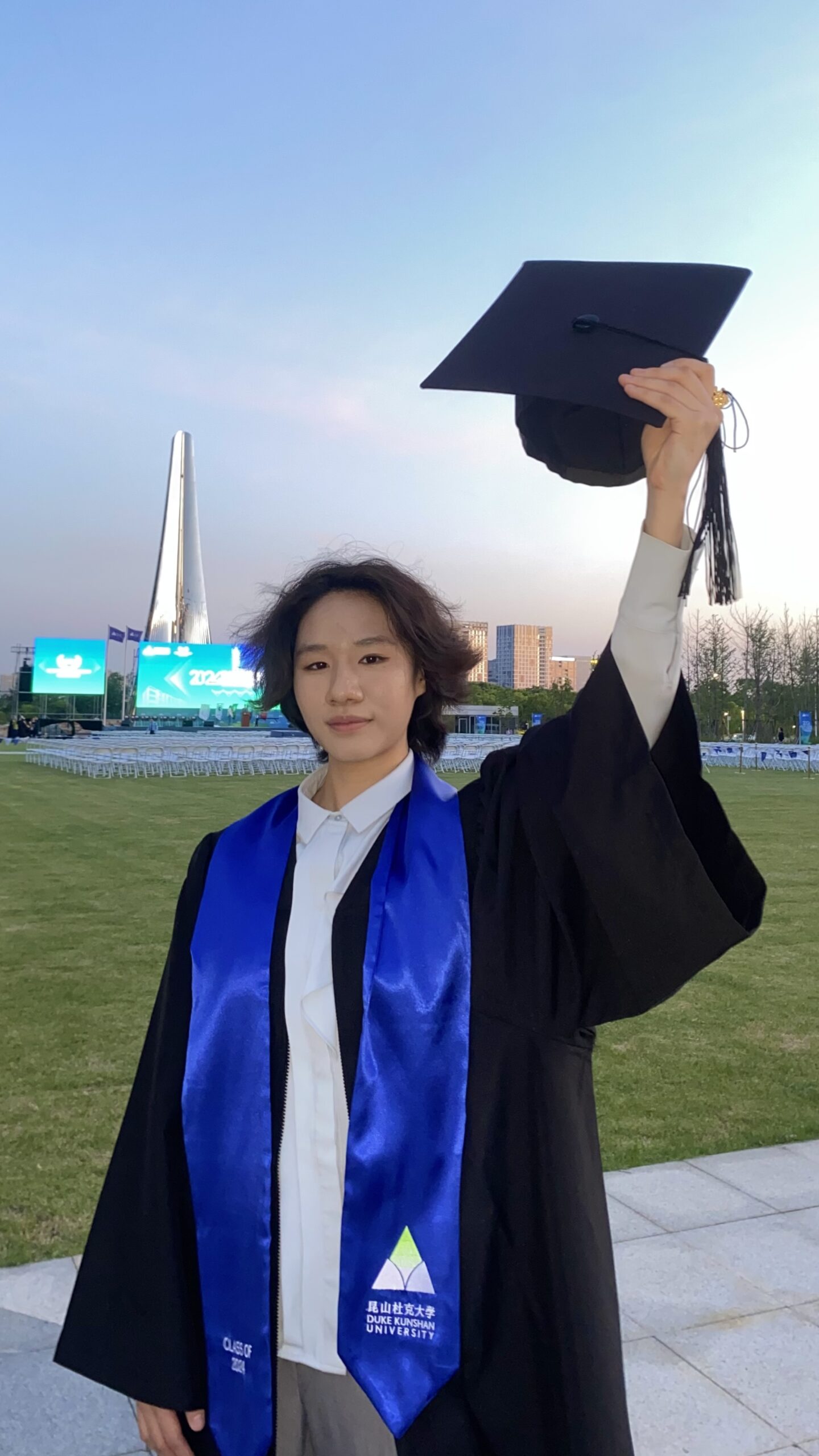
Q1: What were the main challenges you faced in the U-Corp project? How did you respond?
Our team’s client is Huochai Box, a non-profit organization dedicated to improving educational opportunities for children in rural China. The challenge we faced was how to enhance effective communication and cooperation between Huochai Box and various stakeholders (including corporate sponsors, non-governmental organizations, volunteers, and school teachers and principals). To solve this problem, we designed a database prototype as a model for future WeChat mini-programs. This centralized platform aims to simplify operations, enhance collaboration, and provide stakeholders with a unified space to manage data and connect with each other. By utilizing this platform, Huochai Box can better coordinate its projects, increase stakeholder participation, and ultimately enhance its positive impact on rural education.
Q2: What advice do you have for students who want to participate in the U-Corp project and those who are already participating?
For those who are currently involved in similar projects, I have three main pieces of advice. Firstly, as a team leader, I deeply appreciate the importance of communication. At each stage of the project, we discuss project progress, solve challenges, adjust strategies, and encourage open dialogue among team members through regular meetings. Through these communication mechanisms, we not only improve the efficiency of the team, but also enhance collaboration and trust among members, enabling the project to progress smoothly and achieve expected results. Throughout the process, I learned how to listen to different opinions, balance the needs of all parties, and make decisive decisions when necessary. These experiences have a significant impact on my future career development.
Secondly, I encourage everyone to stay curious and use this opportunity to explore areas of interest and learning. U-Corp is a valuable platform for interdisciplinary learning, just as I took advantage of the project opportunity to learn about database design and management, expanding my knowledge background and experience.
Lastly, I suggest that everyone keep detailed records of project experiences, achievements, and reflections. These are useful materials for job hunting, internship applications, and future graduate school applications. The experience of U-Corp provided me with strong support when applying for graduate school, demonstrating my team spirit, leadership skills, and practical experience that matches the major I applied for.
Q3: What personal growth have you gained from the U-Corp project?
The U-Corp project is not only a bridge that helps me connect theoretical knowledge with practical application, but also a platform for comprehensive cultivation of personal qualities and professional skills. Through this project, I have greatly improved my innovative thinking and project management capabilities, and learned the skills to identify and solve problems in team collaboration. Collaborating with classmates from different professional backgrounds has further enriched my learning experience and made me deeply understand the importance of teamwork and diversity. This interdisciplinary collaboration shows that the integration of various professional knowledge can bring innovative solutions. Through the U-Corp project, I have not only gained valuable practical experience, but also broadened my horizons, laying the foundation for future graduate school and career development.
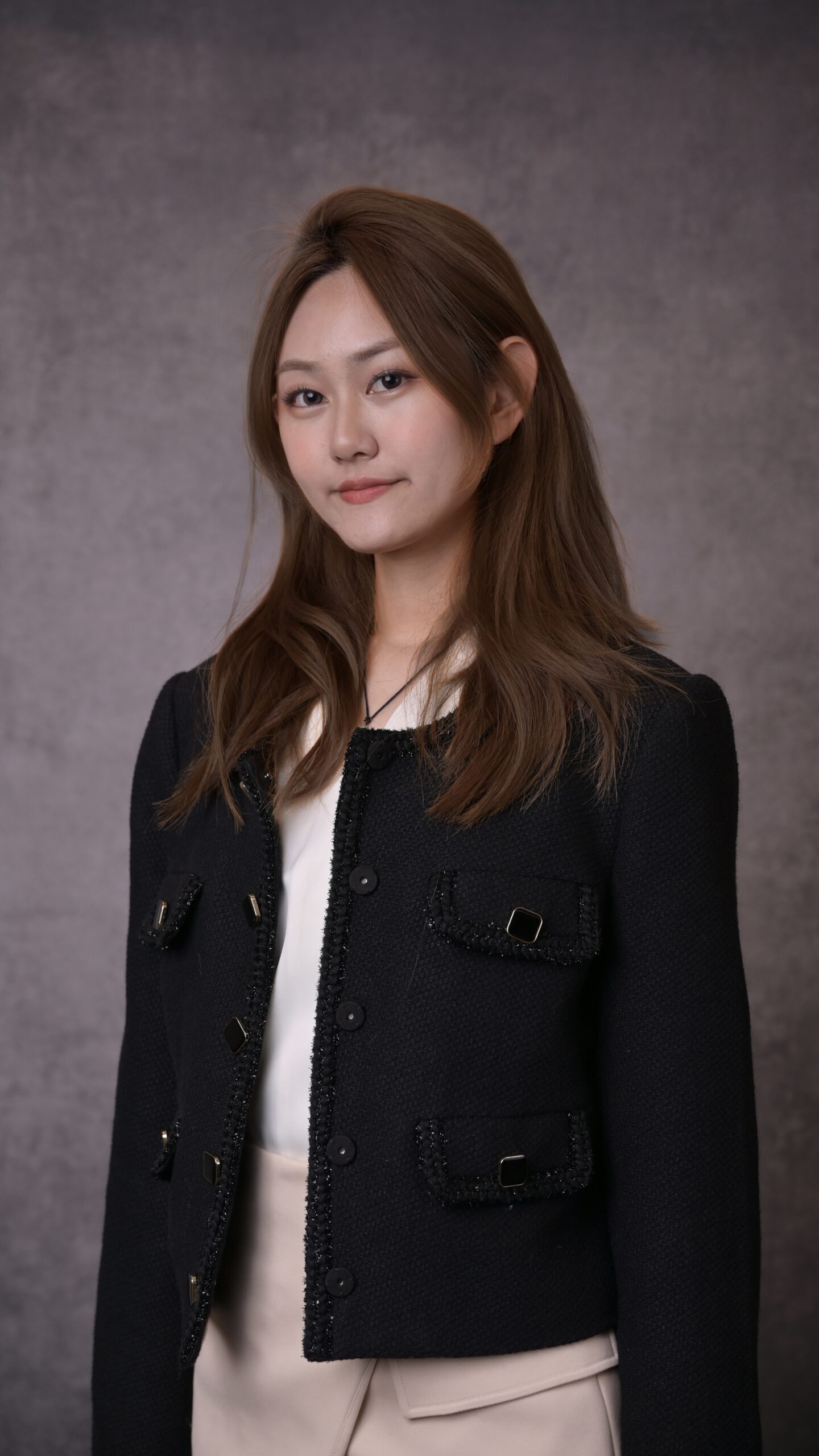
Q1: In the U-Corp project, how did you overcome the uncertainty in communicating with clients to ensure the smooth progress of the project?
In the early stages of the U-Corp project, faced with the client’s unclear demands for the company, my team and I adopted a proactive and continuous communication strategy. We had a mature junior consultant as the leader, who guided us to have in-depth discussions with the clients continuously, repeatedly asking them about their specific needs for the project: “What do you hope to achieve through this project? Is it to improve the existing ESG structure, establish an ESG implementation framework, or do you need an ESG report?” Through this “circular questioning method”, we helped the clients gradually clarify their needs. At the same time, we prepared three preliminary plans for the clients to choose from, simulating the way of reporting to the leadership in actual work scenarios, allowing the clients to feel the process of participating in decision-making, thereby determining the direction of the project – formulating a start-up plan on how to attract new clients. This process honed my communication skills and taught me how to guide conversations in uncertain situations, promoting personal growth. Because doing this project is actually a two-way negotiation process, shaping and growing together with the clients. This uncertainty can instead stimulate my initiative, overall awareness, and understanding of the clients.
Q2: In the process of the project, how did you take advantage of your student status and combine it with practical work experience to promote personal ability improvement?
As a member of the U-Corp project, although we are all just junior employees, our student status has become a major advantage, and I consider myself lucky. We fully utilized this, dared to ask questions like students, and were not afraid to appear unprofessional, because the clients also understood that we were still in the learning stage. When preparing proposals, we combined our previous internship experience and designed multiple plans, not limited to a single suggestion, but provided a menu of options for clients to choose according to their own situation. In addition, we personally visited the client’s company, observed its operation, and communicated with employees at different levels. Similarly, this is different from the company’s due diligence, we visited with a “learning” perspective. This deepened our understanding of the client’s business and broadened our horizons. This special “identity”, a mixed identity of students and employees, taught me how to quickly adapt to the real market environment, and gradually enhanced my ability to handle complex problems.
Q3: In the U-Corp project, what experiences do you think are most critical to your personal growth, and how have these experiences influenced your career development?
In the U-Corp project, I believe the most crucial growth experience was learning how to advance a project amidst uncertainty. Through continuous communication with clients and adjustments to the plan, I learned how to guide clients to clarify their needs when information is insufficient, a skill that is extremely valuable in the future workplace. Because the instructions were unclear, I was actually exploring; I had to write reports and modify plans over and over again, then communicate with the company, and adjust again; I was a bit nervous working back and forth, but the final gain was a finely crafted result. More importantly, it cultivated my ability to solve problems, adapt to changes, and communicate effectively, laying a solid foundation for my subsequent career.

